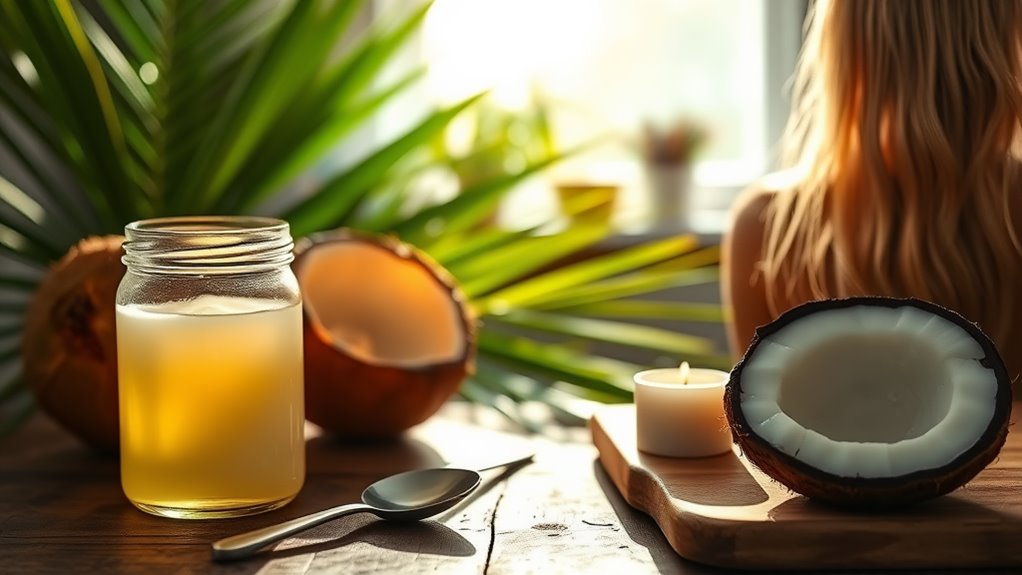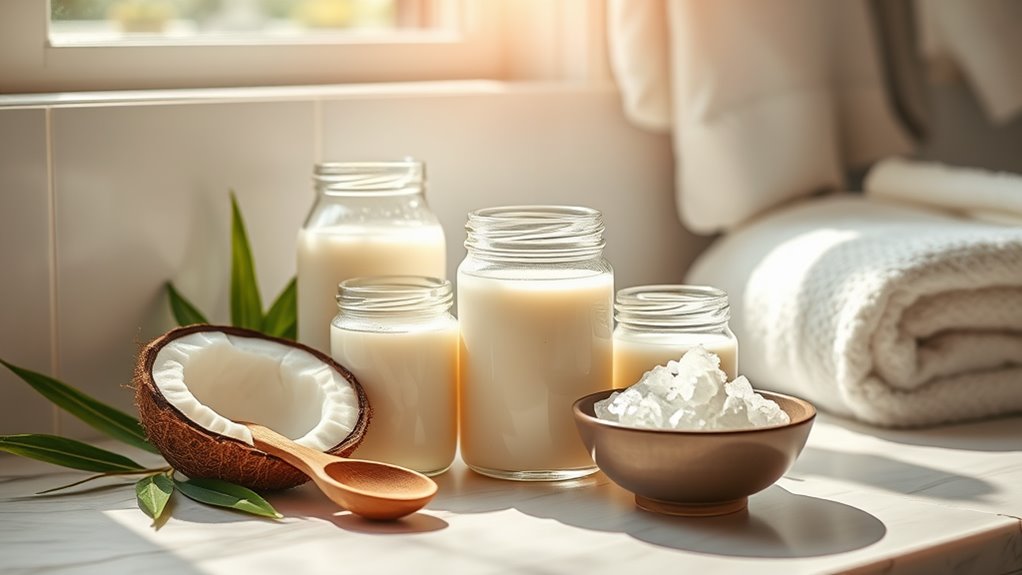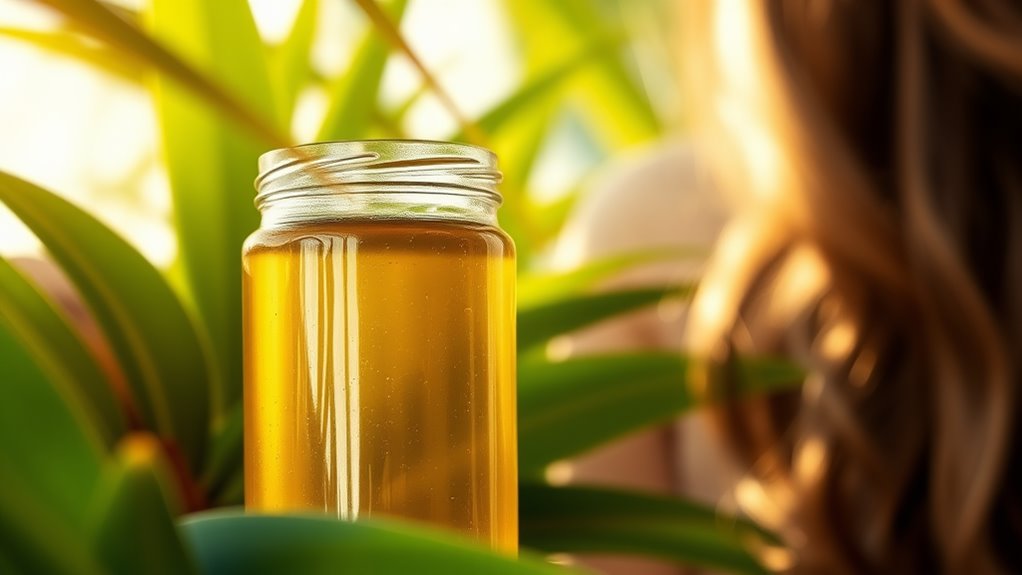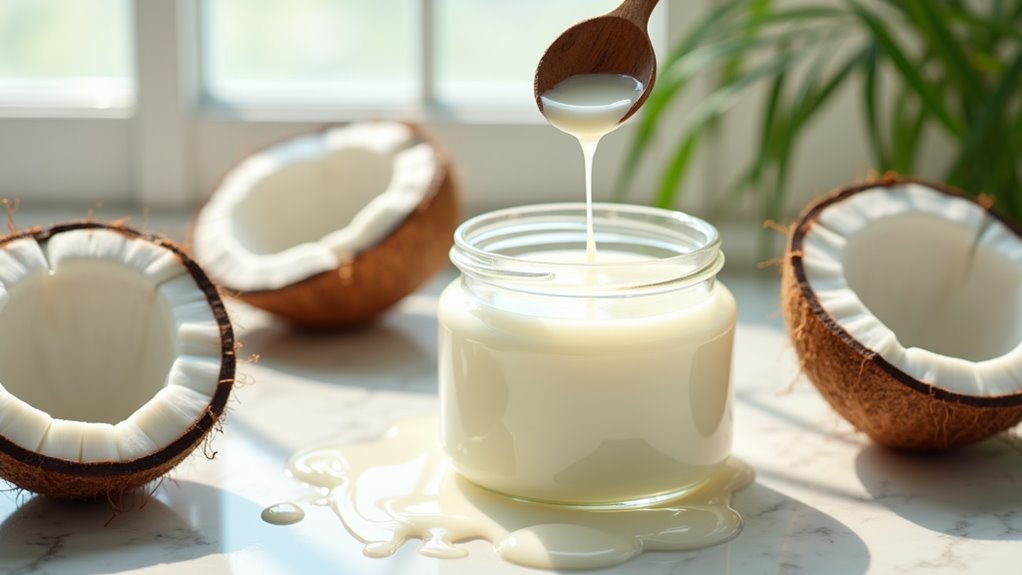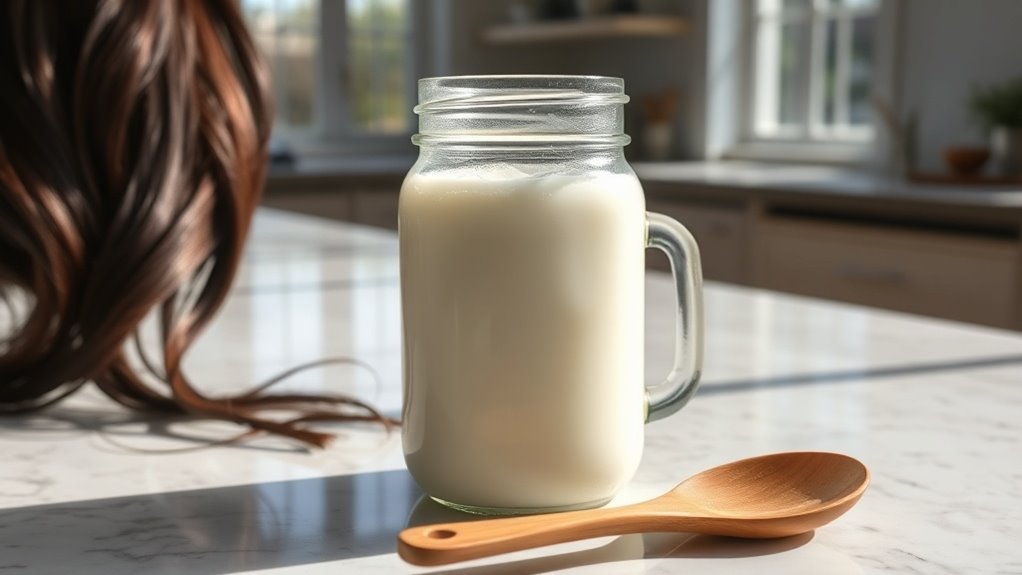Why I Use Coconut Oil on My Skin Every Night
My Journey With Natural Skincare
After struggling with harsh chemical products that left my skin irritated and inflamed, I began exploring natural alternatives in 2015.
Through extensive research, I discovered multiple coconut oil uses for skincare, supported by scientific studies demonstrating its antimicrobial and moisturizing properties.
My initial skepticism transformed into conviction as I witnessed improvements in my skin’s texture and appearance within weeks of incorporating virgin coconut oil into my routine.
The transition taught me that effective skincare doesn’t require synthetic ingredients – nature often provides potent solutions.
Now, I understand why traditional cultures have relied on coconut oil for generations. Its unique blend of fatty acids is what sets it apart from other oils and enhances its effectiveness.
The Science Behind Coconut Oil’s Benefits
While many people use coconut oil based on traditional wisdom, its effectiveness stems from a unique molecular composition. The oil’s medium-chain fatty acids, particularly lauric acid, penetrate skin cells to provide antimicrobial protection and enhance barrier function.
- Contains 50% lauric acid, which exhibits potent antibacterial properties
- Possesses high concentrations of antioxidants that neutralize free radicals
- Consists of small molecular structure that allows deep skin penetration
- Maintains 92% saturated fat content, creating a protective moisture barrier
- Features capric and caprylic acids that regulate skin microbiome balance
Research demonstrates these compounds work synergistically to reduce inflammation, accelerate wound healing, and improve skin hydration. Additionally, the oil’s antibacterial and anti-inflammatory properties make it particularly effective in combating acne and other skin irritations.
Key Nutrients That Nourish Your Skin
Three primary nutrients in coconut oil make it exceptionally nourishing for skin health. These vital compounds penetrate deeply into your skin’s layers, providing both immediate and long-term benefits.
| Nutrient | Function |
|---|---|
| Lauric Acid | Kills harmful bacteria, reduces inflammation |
| Medium-Chain Fatty Acids | Strengthens skin barrier, locks in moisture |
| Vitamin E | Protects against free radicals, promotes healing |
| Linoleic Acid | Maintains skin elasticity, prevents aging |
You’ll find these nutrients work synergistically to enhance your skin’s natural protective barrier while simultaneously fighting damage from environmental stressors. The combination creates powerful antioxidant and antimicrobial effects that support optimal skin health. Furthermore, the inclusion of coconut oil in your routine may improve skin health and wellbeing, benefiting not just your skin but also your overall wellness.
My Nightly Application Routine
Before applying coconut oil at night, you’ll need to properly cleanse your face to maximize absorption and benefits. Follow these specific steps for optimal results:
-
Remove all makeup using your preferred cleanser and pat skin completely dry.
-
Warm a pea-sized amount of coconut oil between your palms until it liquefies.
-
Apply the oil in gentle upward strokes, focusing on dry areas and fine lines.
-
Allow 2-3 minutes for initial absorption before lying down.
-
Use a clean pillowcase to prevent oil transfer and bacterial growth.
For sensitive skin, perform a patch test 24 hours before starting this routine. The oil’s low molecular weight allows it to penetrate deeply while you sleep.
Visible Changes After 30 Days
Users who consistently follow a nightly coconut oil routine typically notice several measurable changes within 30 days.
You’ll observe reduced appearance of fine lines around your eyes and mouth, along with enhanced skin elasticity. Your complexion will become more uniform, with dark spots and hyperpigmentation showing visible fading.
The skin’s moisture barrier strengthens, resulting in decreased dryness and flakiness.
You’ll notice smaller-looking pores and reduced redness from inflammation. Many users report fewer breakouts as coconut oil’s antimicrobial properties help regulate sebum production.
Your skin’s texture becomes smoother, and there’s a natural, healthy glow without excessive oiliness. Additionally, regular use can increase skin hydration by 32% within 6 weeks, which further supports the overall improvement in skin appearance.
Common Myths About Coconut Oil
Despite popular belief, coconut oil won’t clog your pores or cause breakouts if you use it correctly, as its antimicrobial properties can actually help combat acne-causing bacteria.
The notion that coconut oil is too greasy for facial use stems from improper application – you’ll need only a small amount, warmed between your fingers, for effective moisturizing.
While it’s well-known for hair care, coconut oil’s benefits extend far beyond just hair treatment, offering proven skincare advantages including moisture retention, anti-inflammatory properties, and barrier protection.
Clogs Pores and Breakouts
Many people wrongly believe that coconut oil automatically clogs pores and causes acne breakouts.
Scientific research shows that virgin coconut oil actually has antimicrobial and anti-inflammatory properties that can help combat acne-causing bacteria.
- Coconut oil’s lauric acid content helps kill P. acnes bacteria
- The medium-chain fatty acids penetrate skin without clogging pores
- Its comedogenic rating is only 4 out of 5, lower than many other oils
- Natural antioxidants help reduce inflammation and redness
- Vitamin E content promotes healing of existing blemishes
Your skin type ultimately determines how it reacts to coconut oil.
If you’re acne-prone, start with a small test area before full application.
Too Greasy for Face
While concerns about clogged pores deserve attention, the notion that coconut oil is “too greasy” for facial use represents another misunderstanding about this versatile ingredient.
You’ll find that coconut oil’s molecular structure allows it to absorb quickly into your skin, unlike synthetic oils that sit on the surface.
When applied correctly in small amounts, it creates a light protective barrier without excessive shine. The key lies in proper application – you only need a pea-sized amount for your entire face.
If you’re experiencing greasy residue, you’re likely using too much product. The oil should feel silky and lightweight, not heavy or slick.
Only for Hair Care
One of the most pervasive misconceptions suggests that coconut oil’s benefits are limited to hair care applications.
While coconut oil’s effectiveness for hair health is well-documented, research shows it’s equally beneficial for skin care.
- Contains lauric acid, which has antimicrobial properties that help fight skin infections
- Penetrates deeply into skin layers due to its medium-chain fatty acids
- Reduces inflammation and promotes wound healing
- Functions as an effective moisturizer by preventing transepidermal water loss
- Provides antioxidant protection against free radical damage and UV exposure
Scientific evidence supports coconut oil’s versatility beyond hair care, making it a valuable addition to your skincare routine.
Tips for Choosing Quality Coconut Oil
Selecting the right coconut oil for skincare requires understanding key quality indicators. Look for labels marked “unrefined” or “virgin” to ensure minimal processing. The oil should have a natural coconut aroma and clear or white appearance.
| Quality Feature | What to Check |
|---|---|
| Processing | Unrefined/Virgin |
| Color | Clear to White |
| Aroma | Natural Coconut |
You’ll want to verify the extraction method – cold-pressed oils retain more nutrients. Check the packaging type too; dark glass bottles protect against light degradation. Store your coconut oil in a cool, dry place and always ensure the container’s seal remains intact until first use.


